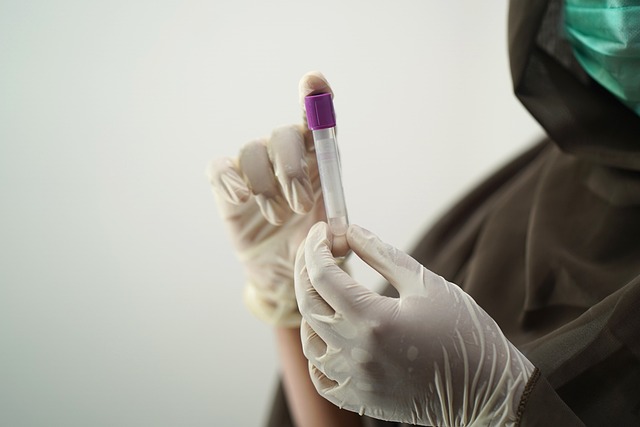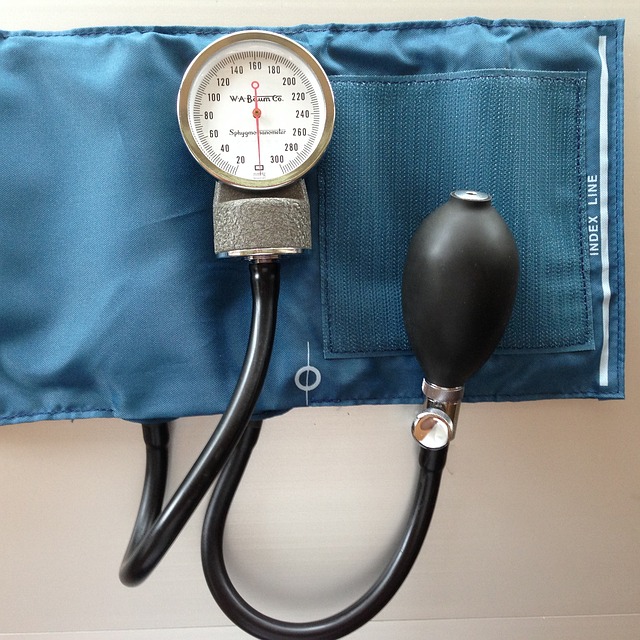UK residents can now perform at-home cholesterol blood tests to conveniently and privately monitor their cardiovascular health. This non-invasive test measures both "bad" LDL and "good" HDL cholesterol levels, crucial indicators of heart disease risk. At-home kits are user-friendly, involving a simple finger-prick sample that is sent to accredited labs for analysis. Results, including total cholesterol, LDL, HDL, and triglycerides, are typically available online within a short timeframe. This method is particularly beneficial for those with busy schedules or mobility issues, offering a proactive approach to health management without the need for hospital visits. It's important to follow instructions by fasting before the test for accurate results, which should then be interpreted in light of established benchmarks: total cholesterol under 5 mmol/L, LDL under 3 mmol/L, and HDL above 1 mmol/L. Any abnormal results warrant a consultation with a healthcare professional. Regular testing allows for the tracking of cholesterol levels over time, reinforcing the role of at-home cholesterol blood tests as a vital tool in the UK's preventive healthcare strategy.
Managing health concerns has become more accessible with advancements in home testing kits, particularly for cholesterol monitoring. In the UK, individuals can now conveniently assess their cardiovascular risk from the comfort of their homes through a simple cholesterol blood test. This article delves into the essentials of understanding cholesterol levels via at-home testing, exploring its seamless process, and offering insights on interpreting results within the UK’s healthcare landscape. Whether you’re keen to monitor your heart health proactively or require guidance post-lifestyle changes, this comprehensive guide will equip you with the knowledge to maximise your health outcomes safely and effectively.
- Understanding Cholesterol Blood Tests: A Comprehensive Guide for UK Residents
- The Convenience of At-Home Cholesterol Testing in the UK: How It Works and Its Benefits
- Maximising Your Health with At-Home Cholesterol Testing: Tips, Precautions, and Interpreting Results in the UK Context
Understanding Cholesterol Blood Tests: A Comprehensive Guide for UK Residents

For UK residents concerned about their cardiovascular health, understanding cholesterol levels through a blood test has become a straightforward process with the advent of convenient at-home kits. A cholesterol blood test in the UK is a vital diagnostic tool that measures the amounts of cholesterol in your blood, particularly low-density lipoprotein (LDL) cholesterol, often referred to as “bad” cholesterol, and high-density lipoprotein (HDL) cholesterol, known as “good” cholesterol. These tests are essential for individuals at risk of or living with cardiovascular diseases, as high levels of LDL can lead to plaque buildup in the arteries, increasing the likelihood of heart attack and stroke. The convenience of at-home kits means that UK residents can now monitor their cholesterol levels without the need for a hospital visit, offering peace of mind and facilitating early detection and management of potential health issues. It’s important for individuals to follow the instructions provided with at-home testing kits carefully, ensuring that the sample is collected correctly and sent to an accredited laboratory for analysis. The results will provide a clear picture of one’s cholesterol status, enabling informed discussions with healthcare providers about lifestyle changes or treatment options if necessary. Understanding your cholesterol levels through a cholesterol blood test UK-based is a proactive step towards maintaining heart health and overall well-being.
The Convenience of At-Home Cholesterol Testing in the UK: How It Works and Its Benefits

In the United Kingdom, the advent of at-home cholesterol testing has revolutionised the way individuals monitor their lipid profiles. The process begins with obtaining a kit, which can be ordered online or obtained from select pharmacies and healthcare providers. This kit contains everything needed for a straightforward and hygienic finger-prick blood sample collection. Upon collecting the sample, the test kit includes instructions for sending it to an accredited laboratory, where professionals will accurately measure your total cholesterol, low-density lipoprotein (LDL) cholesterol, high-density lipoprotein (HDL) cholesterol, and triglycerides. Results are typically available within a matter of days, often online through a secure portal, allowing individuals to understand their cholesterol levels without the need for a clinic visit.
The benefits of at-home cholesterol testing in the UK are manifold. It offers unparalleled convenience, enabling those with busy schedules or mobility issues to manage their health effectively. This accessibility empowers individuals to take proactive steps towards maintaining cardiovascular health, as consistent monitoring can lead to earlier detection of potential issues and more effective management of conditions like hypercholesterolaemia. Additionally, the privacy of at-home testing removes the embarrassment or anxiety some may feel about having their blood drawn in a clinical setting. With the UK’s commitment to healthcare innovation and patient empowerment, at-home cholesterol testing is an invaluable resource that aligns with the nation’s goal of providing high-quality, accessible health services. This service not only complements the existing healthcare infrastructure but also underscores the UK’s proactive stance on preventive health care.
Maximising Your Health with At-Home Cholesterol Testing: Tips, Precautions, and Interpreting Results in the UK Context

In the UK, at-home cholesterol blood tests offer a convenient and private way to monitor your cardiovascular health. These tests provide a non-invasive method for individuals with health concerns or those interested in proactive health management to assess their cholesterol levels. To maximise the benefits of at-home cholesterol testing, it’s crucial to follow the instructions carefully, as provided by the test kit manufacturer. Prior to testing, ensure you have not consumed any food or drink except water for at least eight hours, as this will yield the most accurate results. Additionally, consistent fasting is key to understanding your baseline cholesterol levels, aiding in the identification of any abnormalities that may require medical attention.
Once you’ve collected your sample and followed the specified procedures, interpreting your cholesterol blood test results from the UK requires an understanding of the numerical values. Total cholesterol should ideally be under 5 mmol/L, with LDL (low-density lipoprotein) cholesterol levels less than 3 mmol/L for optimal heart health. HDL (high-density lipoprotein), often referred to as ‘good’ cholesterol, should be above 1 mmol/L. If your results fall outside of these ranges, consult with a healthcare professional for personalised advice and potential lifestyle or medication adjustments. Remember to retest periodically to track any changes in your cholesterol levels over time, ensuring you remain proactive in managing your health.
In the UK, managing health concerns from the comfort of one’s home is increasingly feasible, particularly with the advent of at-home cholesterol testing. This article has delved into the nuances of understanding cholesterol levels, the convenience of conducting such tests at home, and how to interpret results effectively. At-home cholesterol blood tests, like the Cholesterol Blood Test UK, offer a non-invasive method for individuals to monitor their health indicators, providing a valuable tool for proactive health management. By leveraging these services, residents of the UK can access crucial health information without the need for hospital visits, thus empowering themselves to make informed decisions about their well-being. As this article has underscored, at-home testing is a step towards democratising healthcare and making it more accessible, ensuring that individuals across the nation have the opportunity to maintain their cholesterol levels within healthy ranges.
